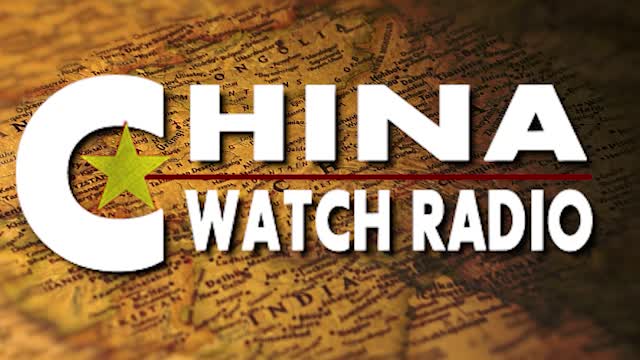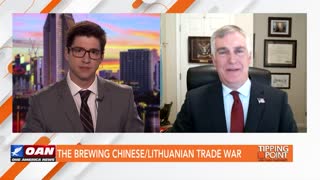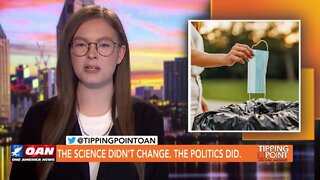Premium Only Content

Chinese Internal Politics Are At A Boiling Point
It's easy to think that the CCP is a political organization of 90 million people that uniformly agree on any given policy, but the reality may be far more complex and illuminating.
The first major faction after the reign of Deng Xiaoping was the Hu Jintao's coalition of peasant farmers. Their sometimes rivals, sometimes partners were the elitist Shanghai coalition, with all the wealth and foreign connections that go along with being "coast elites". The coastal elites, under the leadership of Jiang Zemin, rose above their rivals, when Jaing's faction advocated for the Tiananmen Square massacre in 1989. Jaing created the 6-10 commission to condemn and prosecute the Falun Gong (basically a meditative exercise, with a compassionate morality) practitioners. This was an empowering move, since any political adversary could be accused of being a secret practitioner of Falun Gong and removed from your opposition.
Within the upsurgent "Shanghai gang", Xi Jinping made his rise. He was born in 1953. He became Governor of Fujian province from 1999 to 2002. He joined the Politburo Standing Committee in 2007 and became General Secretary of the CCP in 2012. Shortly after taking power, he orchestrated the "Tigers and Flies" anti-corruption campaign, which removed insufficiently loyal individuals from all the most significant political, domestic security and military positions.
In this show, we discuss why Xi is conducting such a harsh COVID policy, as well as come to terms with the apparent implosion of the Chinese economy.
China Watch Radio is a weekly radio show airing Thursdays 2PM - 4PM Pacific Time on KSCO Santa Cruz.
Visit http://ChinaUberAlles.com to listen to our show live and sign up for our informational newsletter.
#China #Decoupling #CCP
-
 8:05
8:05
KTNV
3 years agoBattle over Badlands reaches boiling point
86 -
 2:21
2:21
Bannons War Room
3 years agoPeople’s Anger Is Bubbling Over, They’re At A Boiling Point
27.5K86 -
 7:28
7:28
Screenplays and Opinions
3 years agoA Screenwriter's Rant: Boiling Point Trailer Reaction
17 -
 6:56
6:56
One America News Network
3 years agoTipping Point - Fred Fleitz - The Brewing Chinese/Lithuanian Trade War
1832 -
 11:43
11:43
One America News Network
3 years agoTipping Point - Justin Hart - The Science Didn’t Change. The Politics Did.
6.64K11 -
 1:38:08
1:38:08
HELMETFIRE
5 hours ago🟢GAMING WITH FIRE EP4🟢RUMBLE TAKEOVER!🟢
30K -
 5:16:57
5:16:57
iCheapshot
6 hours agoCheap Plays Warzone Again? What!?
27.4K1 -
 2:30:14
2:30:14
PandaSub2000
8 hours agoCHAOS & FURY | Episode 27: Attack Of The Cranks (Edited Replay)
33.4K1 -
 3:09:39
3:09:39
Spartan
5 hours agoSpartan - Pro Halo Player for OMiT | Ranked for a little bit
21K1 -
 15:15
15:15
Adam Does Movies
1 day ago $3.00 earnedHappy Gilmore 2 - Movie Review
31.4K18